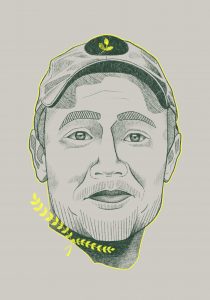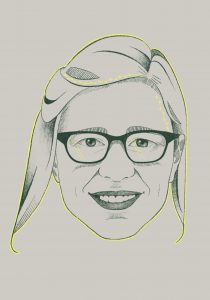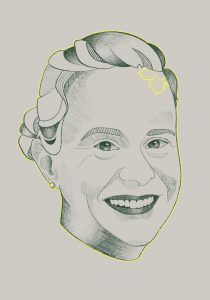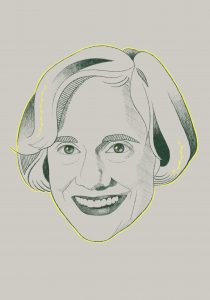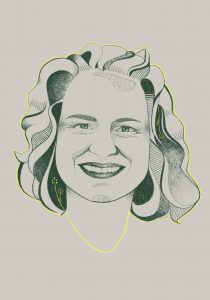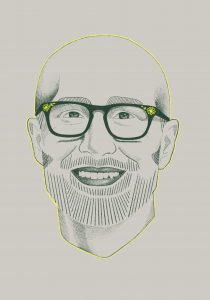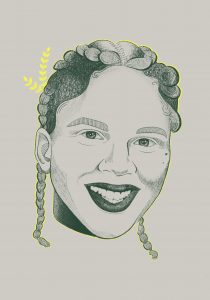About the Authors
Joe Warren recently quit his job and moved to the Twin Cities to answer the question(s) “If and how we should train Development Change Agents in the Global North to work in the Global South. He is a PhD student in Comparative and International Development Education and the IonE Educators’ Graduate Research Assistant. He also lectures in sociocultural aspects of sustainable development at Stellenbosch University’s School for Public Leadership.
Joe holds a BA (Languages and Cultures), MPhil (Intercultural Communication), and a PgDip (Higher Education: Teaching and Learning) all from Stellenbosch University.
He loves dogs, nature, not being able to answer questions but trying anyway, writing haiku and finding ways to bring those into the classroom, or, better yet, the classroom to them.
Mercer-Taylor, over twelve years into working in sustainability education at the University of Minnesota-Twin Cities, still has SO MANY questions, and still finds hope in the students, colleagues and partners with answers and with questions of their own. Beth wonders what university faculty, students and community partners should DO in the face of myriad social injustices and intertwined environmental harms. Who gets to determine the solutions to problems we, who study sustainability, can see and name? Why isn’t sovereignty of Native American tribal nations more integrally part of action plans and solutions, rather than only acknowledgments and stories? What role has our University and higher education played in fomenting inequality and pre-determining existing, unsustainable, paths for our students and the very nature of our livelihoods? Can we teach students to approach problems under the sustainability umbrella with enough knowledge, and humility, to take action and to listen deeply, join with others and find common purpose? More than one truth is possible. Beth finds direction from being outside, learning about phenology, making and mending stuff, caregiving and hanging out with art and artists. Beth and her husband, Peter, a music professor, are proud parents of 3 adult children.
Jessie Barnett Schimek
Dr. Jessie Barnett spearheaded the Undergraduate Public Health Series at UMR, team-teaches nine public health and history courses, and leads a health-oriented outdoor learning program called EcoliteracySCHOOL with a public high school. During her IonE Educators Fellowship, she re-designed EcoliteracySCHOOL to increase accessibility and use of media, art, and photography.
I have been investigating facets of global health for my whole career. Recently, I have turned more attention to the connections between health and food and more specifically, how food production and consumption have become so unhealthy given the application of chemicals on foods, antibiotic use and brutal confinement of animals, and inhumane labor practices in harvesting crops and livestock.
For a few years I researched aspects of these unhealthy industrial foodways along with a colleague. Then the pandemic hit, and we were no longer able to pursue this larger and longer-term project. I also had begun getting frustrated with our sole emphasis on detrimental food production while ignoring the many wonderful initiatives out there for changing paradigms and bringing health back to food across geographies and communities. I decided I wanted to focus more on those initiatives.
Reba Luiken is an environmental historian, educator, and public garden professional. She has a Ph.D. in the History of Science, Technology, and Medicine from the University of Minnesota and a Boreas Leadership Certificate from the Institute on the Environment. She is currently the Executive Director of Allen Centennial Garden where she teaches courses in horticulture, history, and science communication in addition to leading the Garden. She began her time as an IonE Fellow as the Coordinator of Informal Interpretation at the Minnesota Landscape Arboretum where she led hands-on plant programming for visitors of all ages.
Matt Petersen understands your mixed feelings about insects. In his youth he despised the irritating nature of insects. As a graduate student, insects served as the switch that helped him see and understand the natural world through a different, and more focused lens. Now as an educator, he uses this background as a way to help students better understand the importance of insects. He splits his teaching between instructing on the fundamentals of insect biology and expressing the broader interactions and importance of insects to society. He is a Teaching Assistant Professor Department of Entomology, serves as an academic advisor, and is generally involved in all things related to undergraduate education for the department. During his IonE Educators Fellowship, he developed class content on sustainable insect systems, helped create a diversity scholarship for the Insect Science Minor, and explored ways to change the way we see and think about insects.
Sheila Williams Ridge is the Co-Director of the Child Development Lab School at the University of Minnesota. She has a bachelor’s degree in biology and a graduate degree in education, as well as experience as a business manager and preschool teacher/naturalist. She teaches Nature-Based Learning in Early Childhood and Student Teaching in Early Childhood at the University of Minnesota and A Sense of Wonder: Nature Education in Early Childhood at Hamline University. Sheila is a facilitator for the NAEYC Young Children and Nature Interest Forum, and on the board for the Voices and Choices coalition, the Minneapolis Nature Preschool, Saint Paul City School, and Dodge Nature Center. She is also a member of the Natural Start Alliance Council. Sheila is co-author of the book, Nature-Based Learning for Young Children: Anytime, Anywhere, on Any Budget, published by Redleaf Press and is passionate about encouraging nature-based play and the lasting developmental benefits of a relationship between children and nature.

